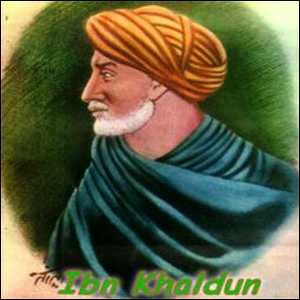
As the cultural and spiritual capital of Morocco, Fez has been selected to host an exhibition highlighting the period when the Arab historian Ibn Khaldun (1332-1406) spent six years in the kingdom. This is part of an initiative by the Moroccan Ministry of culture to dedicate 2006 to celebrating the 600th anniversary of the death of Ibn Khaldun.
Ibn Khaldun was well known for the various offices he held under the rulers of Tunis and Morocco. In 1363, he served as ambassador of the Moorish king of Granada to Peter the Cruel of Castile. In 1382, he went to Cairo where he spent the rest of his life as a teacher and lecturer. He also served as a judge in Egypt. In his work, Kitab Al-Ibar (Universal History), he attempted to treat history as a science and outlined a philosophy of history, setting forth principles of sociology and political economy.
To further commemorate the great achievements of Ibn Khaldun in terms of sociology and history, the Moroccan ministry will organise two series of conferences.. The first one will take place from April 5 to May 19 and the second from Sep. 13 to Nov. 8, in Rabat, Casablanca, Marrakech, Tetouan, Fez and Meknès.
A number of Moroccan historians and thinkers will attend the conferences, including Ali Idrissi, Bennacer Baâzati, Bensalem Himmich, Mounira Chaboutou, Abdeslam Cheddadi and Mohammed Naciri.
As part of the same celebration, the re-publication of Ibn Khaldun's book is also scheduled.
Interestingly, a cultural meeting was organised last weekend in Burbank (California) under the theme: “To build a bridge between nations and cultures.”
Initiated jointly by the Moroccan American Association of South California and the Grove of Hope Foundation, the commemorating event brought together about 500 members of the Arab and American communities.
The meeting aimed to pay tribute to the eminent Maghreban sociologist and first theorist of civilisations' history, Ibn Khaldun.
The director of history at the University of California in Los Angeles (UCLA), Professor Mahmmod Ibrahim, talked about the life and work of this researcher and philosopher of history who had left an important heritage to the Arab world, namely The Muqaddima "Prolegomena". This talked about Berber, Arab and Persian history and scientifically analysed the troubled politics of the Maghreb at that time.
Ibrahim also spotlighted the important achievements of the Arab thinker in the human sciences and his openness to other western cultures and civilisations. He underlined that Ibn Khaldun made a science of history, governed by social laws with all their political, cultural, economic, demographic and sociological aspects.
“I have seen in this Arab thinker, Ibn Khaldun, a message of Maghreban union,” said the Professor.
Tags: Morocco Fes, Maghreb news

No comments:
Post a Comment